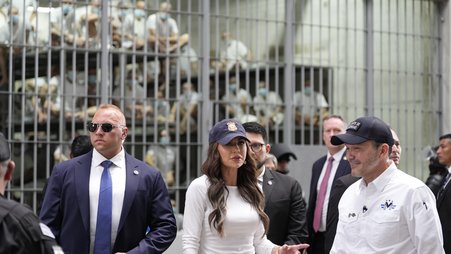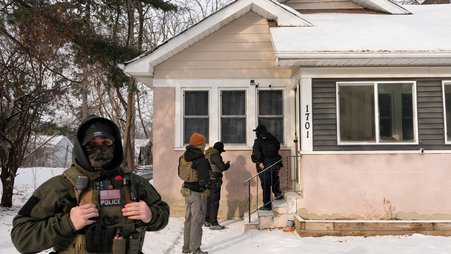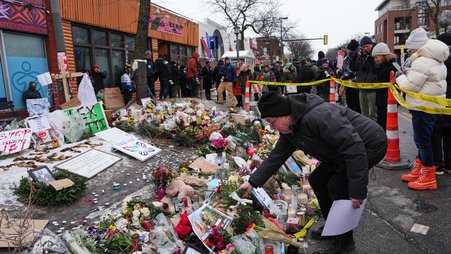
The coronavirus crisis has highlighted the importance of whistleblowers to a free and unfettered press. Throughout this emergency, it has been whistleblowers playing a critical role in informing the general public and forcing governments to make important public health decisions. And it has been whistleblowers that have pierced the will of governments around the world who have tried to downplay the significance of the threat facing their citizens.
In China, where the virus is believed to have originated, the government's "fail-safe" system for spotting contagious outbreaks failed to pick up the new illness, reportedly because local officials withheld information for political reasons. Instead, central health authorities learned about the outbreak when whistleblowers leaked internal local government documents.
These documents emerged alongside observations from Dr. Li Wenliang, widely known as "the whistleblower doctor," who warned colleagues about new patterns of illness in WhatsApp messages now credited with raising the alarm about the new virus. He was detained and forced to confess to spreading false rumors in January, and was subsequently diagnosed with COVID-19, leading to his death in February. The Chinese government faced massive online backlash for its handling of the Li case, and has subsequently attempted to reclaim him as a national hero.
Do you have important information to bring to the public? Read our guide on sharing sensitive leaks with the press.
In the United States, where the official response has been fractured and at times incoherent, whistleblowers have played a key role in escalating issues within the government and to the press.
It was reported in February that U.S. health workers were given neither special training nor protective gear when handling Americans who were in quarantine on air force bases after being evacuated from coronavirus hot zones. The information underlying that reporting came from a whistleblower report shared with Congress and obtained by media outlets.
That person's identity is not publicly known, and members of Congress have reported that she has been subjected to professional retaliation.
In the Navy, leadership was not taking adequate steps to protect its sailors from contracting and spreading coronavirus, according to a letter sent from aircraft carrier captain Brett Crozier to his superiors. The letter described conditions on the U.S.S. Roosevelt, which Crozier led, as it was ravaged by coronavirus. It was sent to multiple recipients through unclassified channels, which Navy officials said could encourage it to be leaked — as it ultimately was, to the San Francisco Chronicle.
Although the Navy has not publicly named a suspect for that leak, it fired Captain Crozier for his role in its release. (Crozier later tested positive for coronavirus as well.) The Acting Secretary of the Navy, Thomas Modly, flew to Guam to address the crew of that ship in a profanity-laden tirade that included a warning not to consider acts of whistleblowing in the public interest. In particular, Modly's address included the lines:
There is no, no situation where you go to the media. Because the media has an agenda and the agenda that they have depends on which side of the political aisle they sit and I'm sorry that's the way the country is now, but it's the truth and they use it to divide us and use it to embarrass the Navy.
His admonition against leaking was apparently ineffective, as audio and transcripts from his speech were released to multiple outlets immediately. Modly initially defended his remarks, but has since stepped down from his post.
Some of the most shocking stories about the disarray in the U.S. response to the coronavirus outbreak have concerned the shortages of personal protective equipment, or PPE, used every day in medical settings. The reasons for the shortages are varied — ranging from an insufficient national stockpile to the absence of a strategy for coordinating supplies between states — but reporting on the shortages has likely made a significant difference in spurring action to remedy those problems.
Some hospital administrators, however, have been openly hostile in their response to that reporting. In fact, at many hospitals around the country, doctors and nurses have been told that they could be fired for speaking with the media about the lack of PPE available to them. As the New York Times reported, in “the epicenter of the crisis in the United States, every major private hospital system has sent memos in recent weeks ordering workers not to speak with the media, as have some public hospitals.” Several nurses and doctors in the U.S. have already been suspended or fired for posting on Facebook about PPE shortages, protesting the shortages, or talking to the media about them.
These examples show courageous individuals going out of their way to correct the wrongs they've observed. In many cases, these are people who are already putting their life on the line for public health, taking extra steps to fight for the truth. That impulse should be rewarded, and at times governments have pursued that ideal, through legislative efforts to protect whistleblowers, or even reward them for their service.
Unfortunately, at the highest levels of the U.S. government, the impulse to root out corruption and inform the people has instead been punished at every turn. Most recently, this can be seen in the Trump administration's decision to fire the intelligence community inspector general responsible for fielding the whistleblower complaint that led to President Trump's impeachment last year.
Under any circumstances, that willingness to engage in political retribution and retaliation against a whistleblower would be cause for concern. But during a global pandemic, where a clear view of the facts as they are is of paramount concern, it may truly be a question of life and death.




